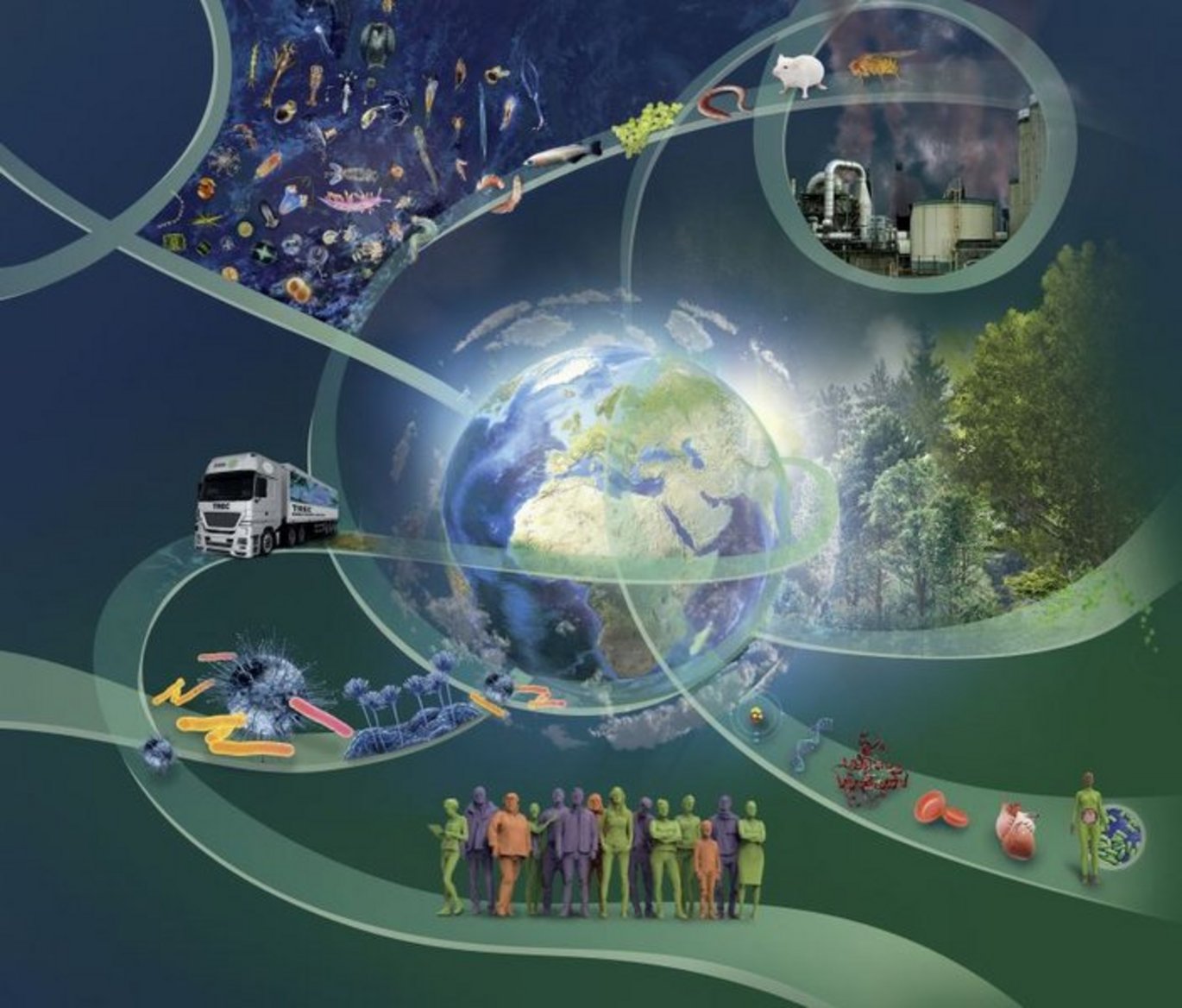Symposium: Molecular biology engages global climate and ecosystem agenda
On 3 -4 November, Aarhus University will host a symposium at which the European Molecular Biology Laboratory (EMBL) and Aarhus University will present the Molecules to Ecosystems programme. The aim of the symposium is to build bridges between molecular biology and the major global agendas – including climate change, biodiversity and ecosystems.

Over recent decades, remarkable molecular insights have been made in model organisms, ranging from bacteria to animals, under controlled lab conditions. But living things do not exist in isolation: every organism in nature is part of a complex and dynamic ecosystem, living in complex interdependency wit other organisms and their in physical and chemical environments. Understanding these systems and their dynamics and creating models that can predict and test outcomes requires close collaboration with scientists from a wide variety of different domains and technologies.
This is the prelude to the Molecular Biology Laboratory’s latest research programme Molecules to Ecosystems (EMBL), which aims to strengthen molecular biology research in the service of the major global agendas on climate, biodiversity and ecosystems.
A major symposium on these themes in the Main Hall at Aarhus University will take place 3-4 November. Professor Paul Nissen, Department of Molecular Biology and Genetics, is the chair of the symposium organising committee, and he has correspondingly great expectations with regards to the symposium’s effects:
"We will have the opportunity to invite more disciplines in and hopefully increase the level of activity from the Danish side, so that we make greater use of the facilities and the opportunities for collaboration in the network," Nissen says.
He hopes that EMBL will take major strides towards becoming an active player in the member states’ strategic research into climate and environmental questions as well as pandemics.
"EMBL has always been a pioneer of new methods and questions in molecular biology. The Symposium at Aarhus University will be a snapshot of the most advanced research and a glimpse into the research of the future,” Nissen says.
New programme links two worlds
EMBL is one of the leading research institutions in the world and in Europe within the life sciences. Since its founding in 1974, in which Denmark was involved, 28 countries have joined as members.
In 2021, a national satellite research centre, DANEMO, was established to increase Danish attention and the use of EMBL and EMBO’s educational and research programmes. EMBO is EMBL's sister organisation, the European Molecular Biology Organization.
The new programme from EMBL tackles bringing two major worlds together in the biological sciences: On the one hand the molecular and genetic mechanisms of cells and organisms. On the other hand, ecosystems and their dynamism under environmental impacts and climate change. This means, for example, the interactions of microbiomes and changes in the marine environment, agricultural soils or the human gut, and the complex interaction of cells, viruses and molecules in the human body during infections and pandemics.
The programme will expand EMBL’s focus from molecular biology to a broader understanding of the interplay between all life processes with each other and in changing environments. According to Poul Nissen, this has major perspectives:
"Potentially, we can find solutions or focus points on some of society's biggest threats, such as irreversible loss of biodiversity and food insecurity due to pollution and climate change, new pandemics and antimicrobial resistance.”
A moonshot mission
Poul Nissen predicts that the new EMBL programme will be very important step forward in the ambition of moving from curious description to reliable models of complex, living systems.
"We've been wanting to do this and have done small experiments for many years, but now the EMBL is making a concerted "moonshot mission,” he says.
The programme will also make resources available. The 28 countries have contributed generous sums in order to realise the initiatives. This also makes the programme attractive for early career researchers, predicts Poul Nissen, who emphasises that early career researchers and students are also particularly welcome at the symposium.
"EMBL has specialised courses, conferences and workshops and a wealth of job offers that can promote career development and research networks. It’s a good place to start for early career researchers who have ambitions and desire to work in this field,” Nissen says.
EMBL and EMBO in brief:
Since the early 1970s, Denmark has been a member of the European Molecular Biology Organisation (EMBO) and the European Moleculear Biology Laboratory (EMBL). EMBO is primarily an academy of molecular biology sciences, and EMBL serves as an independent laboratory. EMBL is an independent research institution which conducts its own research and methodology development, while at the same time supporting the research environments of the member states by offering different types of facilities, service and training.
Source: Uddannelses- og Forskningsministeriet.
Link to the symposium website
Professor Poul Nissen
Department of Molecular Biology and Genetics, Aarhus University Head of Nissen Group at the research centre Dandrite – an offshoot of the Nordic EMBL Partnership within Molecular Medicine.
pn@mbg.au.dk
Tel: 28 99 22 95